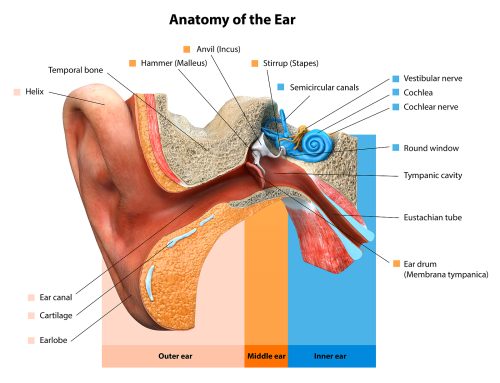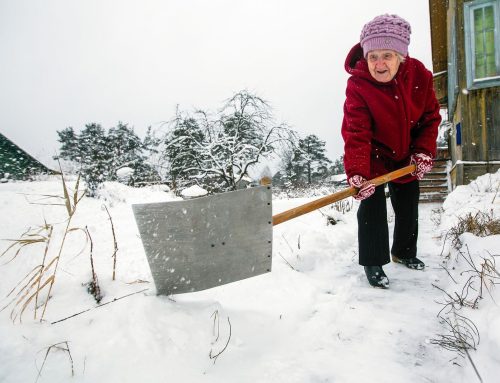Many people tend to associate in-home care with elderly care, which isn’t incorrect, but doesn’t give the full picture. With advances in technology and modern medicine, seniors have been able to live much longer than ever before and maintain their independence longer as well. Additionally, many middle-aged people have debilitating diseases or handicaps that limit their independence. In any situation, age should not be a determining factor for when someone is ready for some assistance with in-home care. More important than any other demographic factor is when your loved one would benefit from some in-home care. Here are eight signs that your loved one may show that would indicate they would benefit from a home caregiver.
#1 Change in Medical Status
If your loved one was admitted to the hospital and released, but is not back to their “old self” quite yet, this is the optimal time to suggest some home health care, whether it is temporary or becomes the new normal. If your loved one was not admitted to the hospital, but has been increasingly ill and having difficulty taking medications or keeping up with their healthcare needs, they would benefit from regular home health nurse visits. Visits from a home health nurse can help identify problems or worsening conditions before they get to the point of requiring hospitalization. Home health nurses are part of an interdisciplinary team that can help arrange and coordinate other services as they may need them.
#2 They Require Therapies
If your loved one was admitted to the hospital for a medical or surgical issue, they may be prescribed physical, occupational, and/or speech therapies upon discharge. While an inpatient rehabilitation center is always an option, many people prefer to return home and then use in-home therapy or hire an in-home companion to assist with chores and daily hygiene at home and to help with transportation to and from therapy appointments at a clinic.

#3 Increases in Forgetfulness
Some changes in memory may be normal as one ages and experiences changes in their retirement years. If the problem seems to persist beyond needing to make lists, it may indicate a bigger problem. When your loved one begins to forget family members’ names or where they are going, your loved one may require regular assistance. Memory loss is a classic sign on dementia, which can have many causes, including infection or Alzheimer’s Disease. If forgetfulness has escalated, they may benefit from an in-home companion.
#4 Change in Habits
If your loved one has displayed changes in normal habits, it may indicate a larger issue — such as disease, memory loss, pain, physical changes, or depression — that may be a reason to consider in-home care. If your loved one typically has a tidy house, bathes daily, and cares for their pets, and then all of a sudden, their home appears unkempt, their hygiene is lacking, and the pets have not been cared for, it is time to intervene. Finding the source of the change is a priority, and the next priority is getting them the assistance that they need. Home health companions can assist with routine Activities of Daily Living (ADLs), such as bathing, dressing, and toileting. In-home housekeepers can help with cleaning and organization.
#5 Falls or Near-Falls
If your loved one has suffered a recent fall or near-fall incident, it is a good time to hire some help. Home health companions are trained to identify and mitigate in-home risks, such as loose rugs and frisky kittens, and can help with transfers and walking to prevent falls. If your loved one requires an assistive device — walker, cane, wheelchair — a home health companion can be sure that it is always handy and being used! They can also help prevent falls during outings. If falls do occur, having regular in-home care can ensures that your loved one is found and gets help as soon as possible.
#6 Weight Loss
If you notice that your loved one has recently lost weight, first find out if it is intentional. If you do not live with your loved one or see them daily, it may take a while to notice weight loss, but unexplained weight loss is an indication that something is wrong. Several diseases and disorders — depression, cancer, diabetes, hyperthyroidism, and tuberculosis, for example — can cause sudden unexplained weight loss, but more often, it can be related to memory impairment or medications. If your loved one is suffering from dementia, they may forget to eat, how to prepare food, or to go grocery shopping. Physical pain or changes can make it difficult to stand at the counter to prepare food and cause a loss of appetite. Any of these reasons are good reasons to have 24-hour companion care.

#7 Depression
Depression in the elderly is an increasing concern. When the health and stability of a person changes, they may naturally become more socially isolated. When people outlive their spouses and friends, it becomes increasingly difficult to engage in social activities. Many people find purpose in careers, family roles, and volunteer or entertainment outings. When driving abilities and income become limited, people tend to become more isolated, and this can lead to feelings of helplessness and hopelessness, which can lead to depression. An in-home companion can offer companionship to the lonely and help them get out of the house and engage in social stimulation.
#8 Changes in Caregiver’s Abilities
If your loved one lives with you or depends on you as a full-time caregiver, it can be stressful and difficult to juggle being a caregiver and caring for your other responsibilities, such as children and a job. If you have other life changes, such as a promotion at work, an injury, or anything that affects your ability to be a full-time caregiver, it is time to call for backup! In-home care can help you part-time, full-time, or as intermittent respite care as needed. Caregiver fatigue can lead to your performance in all responsibilities to be lacking and stress and exhaustion to build, which isn’t ideal for you or your loved one. Let in-home health care services help!
When you notice any of the above signs, it may be time to discuss in-home care options. If you are looking for in-home care in Bergen County, At Home Companions, provides help with medical intervention, routine housekeeping, and respite care for you and other caretakers. We offer full-time, part-time, and 24-hour care — anytime, anywhere. Give our friendly experts a call today to see how we can help your family.






